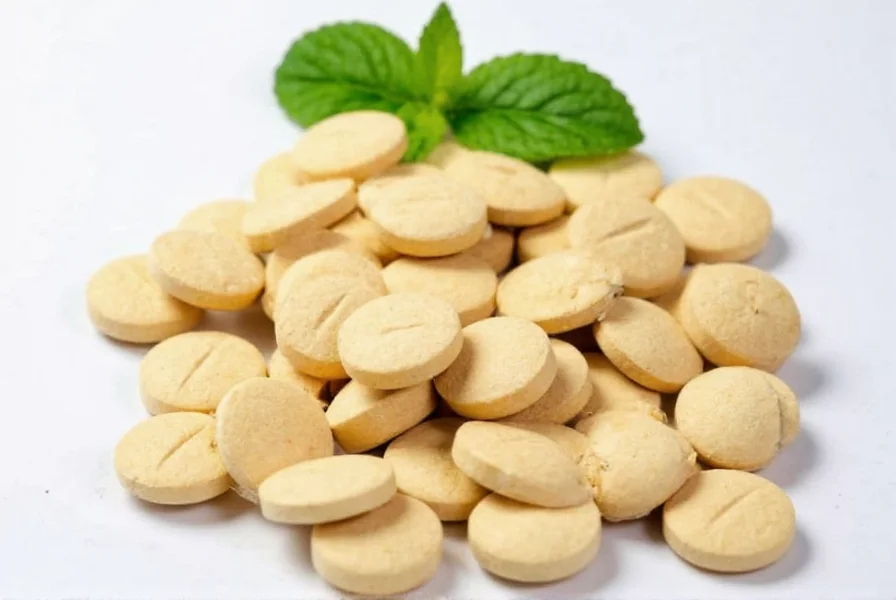
Understanding Methi Tablets and Their Composition
Methi, commonly known as fenugreek, has been used for centuries in traditional medicine systems across Asia and the Mediterranean. Modern methi tablets provide a concentrated form of this ancient remedy, standardizing the active compounds found naturally in fenugreek seeds. The primary bioactive components include:
| Active Compound | Natural Concentration in Seeds | Primary Functions |
|---|---|---|
| Galactomannan fiber | 20-30% | Slows carbohydrate absorption, supports digestive health |
| 4-hydroxyisoleucine | 0.01-0.05% | Stimulates insulin secretion, regulates blood sugar |
| Diosgenin | 0.5-1.5% | Potential hormone regulation, anti-inflammatory effects |
| Saponins | 2-5% | May reduce cholesterol absorption, support cardiovascular health |
Scientific Evidence for Methi Tablet Benefits
Research on fenugreek's health effects has expanded significantly in recent years. Clinical studies examining methi tablets specifically have shown promising results for several health concerns, though the evidence quality varies across applications.
Blood Sugar Management
Multiple randomized controlled trials indicate fenugreek supplementation may improve glycemic control. A 2022 meta-analysis published in Nutrition Reviews examined 15 clinical studies involving 927 participants with type 2 diabetes. Researchers found that daily fenugreek supplementation (typically 1-2 grams) reduced fasting blood glucose by an average of 18.9 mg/dL and HbA1c by 0.78% compared to placebo. The mechanism appears related to delayed gastric emptying and enhanced insulin sensitivity.
Lactation Support
For nursing mothers seeking natural galactagogues, methi tablets represent one of the most researched options. A double-blind, placebo-controlled study in the Journal of Alternative and Complementary Medicine followed 70 postpartum women. Those taking 580mg fenugreek capsules three times daily showed significantly higher breast milk production within 72 hours compared to the placebo group. However, individual responses vary considerably, and not all women experience increased milk supply.
Cholesterol Regulation
Evidence regarding methi tablets' impact on lipid profiles remains mixed. Some studies show modest reductions in LDL cholesterol (approximately 10-15%) and triglycerides, while others demonstrate no significant effects. The fiber content likely contributes to any observed benefits through reduced cholesterol absorption in the digestive tract.
Proper Usage and Dosage Guidelines
Understanding appropriate methi tablet dosage is crucial for both effectiveness and safety. Most clinical studies use standardized doses between 500mg and 2000mg daily, typically divided into two or three doses. The optimal amount depends on the specific health goal:
- Blood sugar support: 1000-2000mg daily, taken before meals
- Lactation enhancement: 580-610mg three times daily
- General wellness: 500-1000mg daily
Maximum benefits typically appear after 2-4 weeks of consistent use. Taking methi tablets with food reduces potential gastrointestinal side effects. Look for products standardized to contain at least 50% galactomannan fiber for blood sugar applications or 0.5% 4-hydroxyisoleucine for metabolic support.
Safety Profile and Potential Side Effects
Methi tablets are generally well-tolerated when used appropriately, but several considerations warrant attention:
Common Side Effects
Approximately 15-20% of users experience mild gastrointestinal effects including:
- Diarrhea or loose stools
- Gas and bloating
- Stomach discomfort
These effects typically diminish within several days as the body adjusts. Starting with a lower dose (250-500mg daily) and gradually increasing can minimize these issues.
Significant Safety Concerns
Certain populations should exercise caution or avoid methi tablets altogether:
- Pregnant women: Fenugreek may stimulate uterine contractions; avoid during pregnancy
- Diabetics: May enhance effects of blood sugar medications, requiring dosage adjustments
- People with peanut or chickpea allergies: Cross-reactivity possible due to botanical relationship
- Those scheduled for surgery: Discontinue at least two weeks pre-operation due to potential blood sugar effects
Choosing Quality Methi Tablet Products
With numerous options available, selecting a high-quality methi tablet requires attention to several factors:
- Standardization: Look for products specifying concentrations of active compounds like galactomannan or 4-hydroxyisoleucine
- Third-party testing: Certifications from NSF, USP, or ConsumerLab indicate verified potency and purity
- Filler content: Avoid products with excessive binders or unnecessary additives
- Extraction method: Water-extracted products preserve more water-soluble compounds like galactomannan
Reputable manufacturers provide transparent information about sourcing, processing methods, and testing protocols. When comparing products for blood sugar support versus lactation enhancement, check that the formulation aligns with your specific health goals.
Integrating Methi Tablets into Your Wellness Routine
For those considering methi tablets as part of their health regimen, a strategic approach yields the best results. Begin with a conservative dose to assess tolerance, then gradually increase to the therapeutic range. Consistency matters more than high dosing—daily use for several weeks typically produces the most noticeable benefits.
Consider combining methi tablets with other evidence-based approaches for comprehensive health support. For blood sugar management, pair supplementation with regular exercise and a balanced diet rich in fiber. Nursing mothers might combine methi tablets with proper hydration and frequent nursing or pumping sessions for optimal milk production.
Regular monitoring provides valuable feedback on effectiveness. Those using methi tablets for blood sugar control should track glucose levels before and after starting supplementation. Nursing mothers can monitor milk production through infant weight gain patterns rather than subjective assessments.
Conclusion: Evidence-Based Perspective on Methi Tablets
Methi tablets offer a convenient way to access the potential health benefits of fenugreek with standardized dosing. Current research supports their use for blood sugar management and lactation support, though individual responses vary significantly. As with any supplement, realistic expectations and professional guidance enhance both safety and effectiveness.
The most successful users approach methi tablets as part of a comprehensive health strategy rather than a standalone solution. When combined with appropriate lifestyle factors and medical guidance, they can contribute meaningfully to specific health goals. Ongoing research continues to refine our understanding of optimal usage protocols and potential applications for this ancient remedy in modern health contexts.
How long does it take for methi tablets to show effects for blood sugar management?
Most clinical studies show measurable improvements in blood sugar markers within 2-4 weeks of consistent daily use. Significant effects on HbA1c typically require 8-12 weeks of regular supplementation. Individual responses vary based on dosage, baseline blood sugar levels, and overall health status.
Can methi tablets interact with diabetes medications?
Yes, methi tablets may enhance the blood sugar-lowering effects of diabetes medications like insulin and sulfonylureas. This combination could potentially cause hypoglycemia. Anyone taking diabetes medications should consult their healthcare provider before using methi tablets and may require medication dosage adjustments under medical supervision.
What's the difference between methi tablets and raw fenugreek seeds?
Methi tablets provide standardized concentrations of active compounds, whereas raw seeds contain variable amounts depending on growing conditions. Tablets offer precise dosing and eliminate the strong bitter taste of raw seeds. However, whole seeds contain additional fiber and nutrients not always preserved in extraction processes. For therapeutic applications requiring specific dosing, tablets generally provide more consistent results.
Are methi tablets safe for long-term use?
Current evidence suggests methi tablets are safe for long-term use at recommended dosages (up to 2 grams daily). Most clinical trials have examined usage periods of 3-6 months with good safety profiles. However, periodic evaluation with a healthcare provider is advisable, especially for those with chronic health conditions or taking medications. Taking occasional breaks from supplementation may help assess ongoing need.
Can men benefit from taking methi tablets?
Yes, men can benefit from methi tablets for applications beyond lactation support. Research indicates potential benefits for testosterone support, exercise performance, and blood sugar management in men. A 2020 study in Phytotherapy Research found fenugreek supplementation improved strength and body composition in resistance-trained men. Men with diabetes or prediabetes may also benefit from its blood sugar regulating properties.











 浙公网安备
33010002000092号
浙公网安备
33010002000092号 浙B2-20120091-4
浙B2-20120091-4